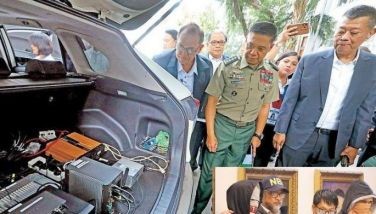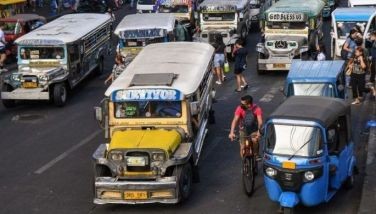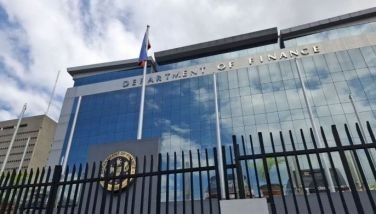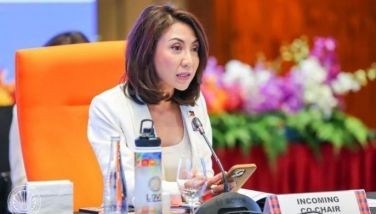Does the 'tara' system exist? Ex-BOC heads say yes, one exec uncertain
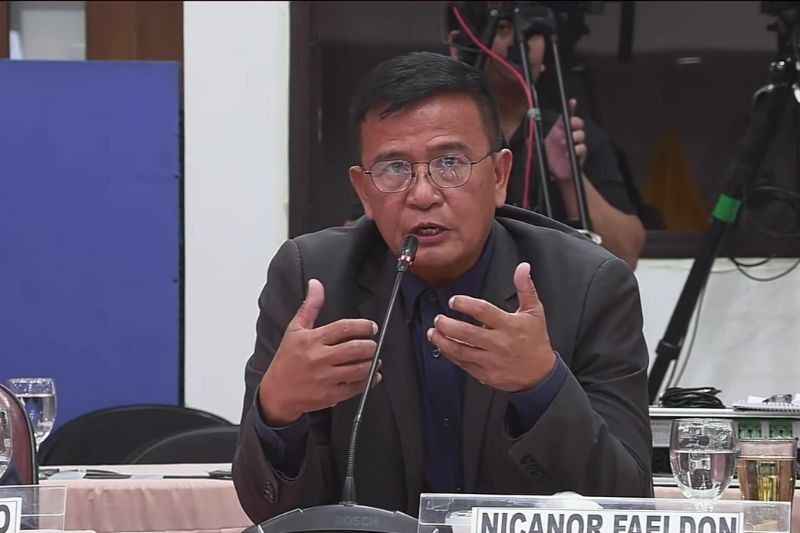
MANILA, Philippines — Employees and former heads of the Bureau of Customs (BOC) have shared conflicting testimonies about the existence of the “tara” system.
At the House Quad Committee’s 14th hearing on Tuesday, January 21, former BOC Commissioner Nicanor Faeldon affirmed the testimony of alleged Customs fixer Mark Taguba, who claimed that grease money, or “tara,” was paid to various offices within the agency to facilitate the release of shipment containers.
Faeldon said he tried to dismantle the system, calling it illegal, but BOC employees were reluctant to come forward. He served as commissioner from 2016 to 2017 before resigning, admitting he had failed to eradicate corruption in the agency.
“It’s criminal, your Honor,” Faeldon said.
He said he spent six months appealing to importers and brokers, urging them to “consider the country's welfare” and refrain from seeking reduced or waived tariffs, citing the nation's debt as a key concern.
Rep. Bienvenido Abante (Manila, 6th District) and Rep. France Castro (ACT Teachers Party-list) suggested that people may be reluctant to come forward out of fear of being held accountable.
Former Philippine Drug Enforcement Agency (PDEA) Director General Isidro Lapeña succeeded Faeldon, who also confirmed the existence of the tara system. He shared a similar experience.
“When I was the commissioner, as I’ve said, I have talked with the importers. That’s one of the input that was given me. ‘Help me address this problem,’ but nobody came forward so what I did was reshuffle the people in the office,” Lapeña said.
Castro asked him if anyone was found accepting or giving grease money, Lapeña said there was none.
Fell short. Both Faeldon and Lapeña agreed with Castro's assertion that they lacked effort in eliminating corruption or holding key players accountable during their tenure as agency heads.
“Alam nila ‘yung existing na problem, pero ‘yung effort po ng ating mga nasa taas na pwesto ng BOC ay hindi nagawa nang masupil,” the lawmaker said, suggesting that an operation similar to a buy bust could have been done.
(They were aware of the existing problem, but the efforts of top BOC officials were insufficient to put an end to it.)
On the contrary. While both former BOC commissioners acknowledged being aware of the “tara” system, Tristan Langcay, a long-time personnel from the agency's legal division insists he has “no personal knowledge” of it.
“As to the existence, I have no personal knowledge of that. If not personal knowledge, I’ve heard of it,” BOC Legal Service Director Langcay told lawmakers.
“I’ve heard stories about the tara system and it seems the tara system was in place even before the shipments were in place,” Langcay added.
He has been with the BOC since 2009, primarily in the legal division. Despite this, he insists he has never witnessed grease money exchanges, even during his tenure as deputy collector of operations, where the “tara” system is said to be widespread.
Lawmakers suspect Langcay is withholding information and have decided to invite BOC Commissioner Bienvenido Rubio to the next hearing.
What is the ‘tara’ system?
Taguba explained that grease money would not have existed if the BOC efficiently processed documents.
He implied that importers and brokers end up paying "tara" to ensure shipments are processed quickly without unnecessary delays, and for others, it is to avoid higher taxes and bypass strict inspections to allow smuggled items into the country undetected.
“Unang una hindi nila kailangan magbigay ng tara kung maayos ang BOC, kung inaasikaso 'yung mga papel at hindi kinakailangan bigyan ng buwis para lang asikasuhin ka, walang magbibigay ng tara,” Taguba said.
(First and foremost, they wouldn’t need to give tara if the BOC was functioning properly. If documents were processed efficiently and there was no need to pay extra just to get things done, no one would be giving tara.)
In a previous hearing, Taguba said he released about 100 containers a day and paid BOC offices P170,000 per container.
Meanwhile, Faeldon explained that he established the Central Command to centralize the issuance of shipment alerts and curb corruption, but it was being exploited with bribes or the “tara” system.
“That’s why the CenComm [was made] to centralize the issuances [of commodities]. ‘Pag iho-hold ‘yung isang commodity … that’s where the corruption starts. Ia-alert ka nila tapos maglalagay ka [ng tara] para marealase,” he said.
(That’s why the CenComm was made to centralize the issuances of commodities. When a commodity is put on hold, that's where the corruption starts. They will alert you, and then you have to pay tara for it to be released.)
Taguba testified before the Quad Comm, admitting his role in the “tara” system linked to the P6.4 billion shabu shipment but denying he is a drug lord.
- Latest
- Trending


















